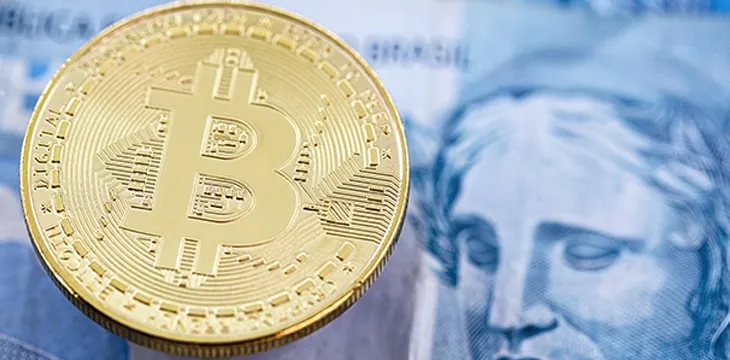|
Getting your Trinity Audio player ready...
|
Brazil is moving forward with its central bank digital currency plans, and in the latest move, it has picked nine firms to explore digital real possibilities, including the region’s largest digital currency exchange.
In a March 3 announcement, the Banco Central do Brasil (BCB) revealed that it had received 47 applications from 43 firms that wanted to take part in the initiative, coming from the United States, Germany, the United Kingdom, Portugal, Sweden, Israel, and Mexico.
The applications were diverse, ranging from payment versus payment (PvP) projects, delivery versus payment (DvP) projects, the Internet of Things (IoT), and decentralized finance (DeFi). Some also presented applications that featured payment solutions where both the sender and recipient are without Internet access (dual offline).
BCB settled on nine firms to explore the opportunities and possibilities that a digital real presents. They include Mercado Bitcoin, the largest digital asset exchange in the Latin American region, whose application involved dealing with digital assets DvP.
Others included Itaú Unibanco, the largest bank in the region with over 4,000 branches, and Banco Santander Brasil, the largest foreign bank in Brazil with over 29 million clients. The former focuses on international payments using the PvP method in an application with Colombia, while the latter focuses on tokenization of real-world property such as vehicles and properties.
Tecban, VERT, and Febraban also got the nod, as did Visa, whose application focused on financing small and medium-sized companies based on a DeFi solution. Aave, a DeFi blockchain project, was also selected, with its focus being on offering peer-to-peer loans through the formation of liquidity pools.
As the central bank noted, the initiative allows it to work with the participants on “the main issues relevant to the implementation of [a digital real] in order to deepen their understanding, mature business models based on this technology and, thus, give continuity to the process of creating a digital currency that can add functionalities to our payment and settlement systems, generating benefits for the whole society.”
Brazil has been making advances in its bid to launch a CBDC at a time when some lawmakers in the country have been pushing to have digital currencies recognized as legal tender. A bill that was first introduced in 2019 was approved last month and seeks to regulate the day-to-day uses of digital currencies.
To learn more about central bank digital currencies and some of the design decisions that need to be considered when creating and launching it, read nChain’s CBDC playbook.
Watch: CoinGeek New York panel, Bitcoin & Blockchain – Can Real Value Come from Real Utility?

 09-07-2025
09-07-2025 





